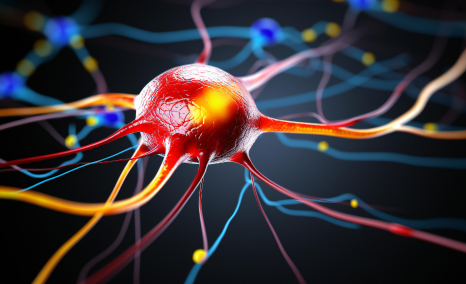Sinusitis: Something More Troublesome Than Just Cold
Apr 26, 2021
Table of Contents
Cold can make anyone cheerless and miserable, however, having Sinusitis is another story. Also known as rhinosinusitis, Sinusitis makes a person suffer from a stuffy nose, blocked nasal passages, congestion, throbbing pain in eyes, forehead, and cheeks, exhaustion and excess mucous leading to full-blown cold for weeks and even months. It is so common that every year about 35 million Americans are diagnosed with Sinusitis at least once. Have a general idea of what Sinusitis is and how is it treated.
What is a Sinus infection?
A Sinus infection, also known as Sinusitis, is an inflammation of the sinuses that is often a result of bacterial infection, however, some viruses and fungi can also cause it.
Downloads
Click Here To Get the Article in PDF
Recent Articles
- Novartis gets CAR-T drug; Shire aims to block; Xeljanz stands; Payer snubs; Lawmakers pass a bill
- Remdesivir accelerates for COVID-19 recovery; Merck pact with Almac; Pfizer, BioNTech finish dosi...
- Soft Tissue Sarcoma: A rare malignancy
- Nunaps raises USD 4.2M; Arcutis files for USD 100M IPO
- Phosphoinositide 3-Kinase (PI3k) Inhibitors: Emerging target therapies against Cancer
Who gets Sinusitis?
People who have compromised immune system are more vulnerable to catching a Sinus infection. It is a common infection that happens in early childhood. A family history of sinus infections may put certain individuals at risk of getting it. People allergic to certain food items, dust or other allergens are also at risk.
How is Allergic Sinusitis different from Nonallergic one?
Nonallergic Sinusitis is a reaction in people who are not born with allergies, however, upon exposure to certain allergens, inhalants, food items, dust, pollen, or smoke, they develop sinusitis. Temperature changes, strong odours, or climate change can also from triggers. Whereas viral infections, such as a cold or flu, may trigger nonallergic sinusitis. A key difference between Allergic and Nonallergic Sinusitis is that Nonallergic sinusitis doesn’t usually cause an itchy nose, eyes or throat.
What are the signs and symptoms of Sinusitis?
Common symptoms of sinus infections are:
- Runny nose
- Stuffy nose
- Facial pain or pressure
- Headache
- Mucus dripping down the throat (post-nasal drip)
- Sore throat
- Cough
- Bad breath
How to know if I have a Sinus infection or a cold?
It is tricky to clearly differentiate between Sinus infections from cold, however, it is possible by keeping a tab on the duration of signs of Sinus infection, color of discharge, and facial pain. Usually, when a person is suffering from Sinusitis, the duration of symptoms, and sinus pressure last for more than 10 days. Furthermore, if the discharge is yellow or green in color, and there is an issue of bad breath, then it can be a Sinus infection.
What are the treatment options available for Sinusitis?
For the treatment of Sinus infections, avoidance of the triggers is mostly effective. However, as not all allergens are avoidable, there exist pharmacological remedies to address Sinus infections including saline nasal sprays, OTC decongestants, corticosteroid nasal sprays, OTC pain relievers, antibiotics, and others.
Besides medications, there is Balloon Sinuplasty, which uses balloons to expand the openings of sinuses. When everything fails to bring relief, endoscopic sinus surgery is performed.
How to prevent Sinus infections?
There exist several measures that can help prevent Sinusitis. Cleaning nasal passage regularly with water, keeping oneself hydrated, inhaling steam, avoiding dry climates, keeping a tab on diet, intake of vitamin D and avoiding decongestants are some of the ways to prevent Sinus problems.
How to cure Chronic Sinusitis?
Chronic Sinusitis lasts longer than 8 weeks and can persist for years. Its treatment more or less is similar to that of Sinusitis comprising Nasal corticosteroids, Saline nasal solutions/ sprays, oral or injectable corticosteroids, desensitization treatment, and surgery.
Can the sun help with Sinus problems?
Vitamin D can help alleviate the symptoms associated with sinus infections by enhancing immunity. Vitamin D helps to slow down the progression of pathogens and prevents pathogenic infections. Thus, getting sunlight, consuming Vitamin D rich foods such as cow’s milk, breakfast cereals, orange juice, fatty fishes, and others helps with Sinus problems.
Why does drinking water help Sinusitis?
Keeping oneself hydrated help in thinning down the sticky mucous secretions, facilitating their easy exit from the sinuses. It will also help in boosting immunity.
What can be the future of Sinusitis treatment?
Several companies including GeneOne Life Science, Lyra Therapeutics, OptiNose, AnaptysBio, Argenx SE, Medtronic, Merck, Sanofi, Pfizer, Precigen, ProclaRx, Quorum Innovations, Regeneron Pharmaceuticals and others are working to develop therapies in the Sinusitis market to address the allergy sinus pain. Effective nasal sprays and anti-inflammatory medications are in the pipeline in different stages of clinical development. The launch of these therapies shall help bring relief to the patient pool.
Downloads
Article in PDF
Recent Articles
- Brain’s immune cells research update; Moderna’s COVID-19 vaccine; Pfizer funnels $200...
- Business Cocktail
- In the race to fight SARS-CoV-2: Merck, ISB; ViiV; Genalyte gears up
- New Player in Ulcerative Colitis Treatment: Pfizer’s Etrasimod Entry Counters BMS’ Zeposia
- Remicade’s launch; Endo cuts jobs; Analysts downgrade Pfizer; Corning $500M glass project




